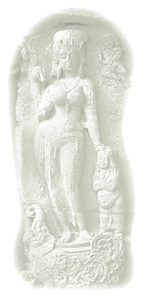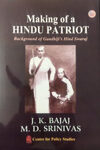True to the pattern, the Principal Opposition has once again let the Congress have its way in the Parliament. After letting the Bill ignominiously pass through the Lok Sabha, the BJP stalled it in the Rajya Sabha for exactly one day. The two reasons offered for not agreeing with the bill in the Rajya Sabha were weighty: One, the bill did not do full justice to the residuary state of Andhra Pradesh, and two, it was unconstitutional, at least one of the crucial proposals of the bill could be legally tenable only through a constitutional amendment. The BJP even offered to help the Congress pass the bill as a constitutional amendment bill. But within a day, it agreed to let the unconstitutionality pass. On the issue of the injustice to the residuary Andhra Pradesh, it agreed to accept the assurances of the outgoing Prime Minister, who is laying down office in a couple of months. He is not in any position to implement the assurances he has given. Yet the BJP gave up its insistence on getting these assurances written down into the bill. The happenings in the Lok Sabha and the Rajya Sabha on this bill, and the way parliamentary bosses of the Congress and the principal Opposition got together to ram the bills through an unwilling Parliament are strongly reminiscent of Mahatma Gandhi’s scathing description of the Parliament in his seminal work, Hind Swaraj. Referring to the English Parliament, Mahatma Gandhi writes: That which you consider to be the Mother of Parliaments is like a sterile woman and a prostitute. Both these are harsh terms, but exactly fit the case. That Parliament has not yet of its own accord done a single good thing, hence I have compared it to a sterile woman. The natural condition of that Parliament is such that, without outside pressure, it can do nothing. It is like a prostitute because it is under the control of ministers who change from time to time. Today it is under Mr. Asquith, tomorrow it may be under Mr. Balfour. …But, as a matter of fact, it is generally acknowledged that the members are hypocritical and selfish. Each thinks of his own little interest. It is fear that is the guiding motive. What is done today may be undone tomorrow. It is not possible to recall a single instance in which finality can be predicated for its work. When the greatest questions are debated, its members have been seen to stretch themselves and to doze. Sometimes the members talk away until the listeners are disgusted. Carlyle has called it the “talking-shop of the world.” Members vote for their party without a thought. Their so-called discipline binds them to it. If any member, by way of exception, gives an independent vote, he is considered a renegade. If the money and the time wasted by the Parliament were entrusted to a few good men, the English nation would be occupying to-day a much higher platform. The Parliament is simply a costly toy of the nation. … Mahatma Gandhi wrote these strong words about the English Parliament after having met many of its leaders and after having personal experience of the functioning of the Parliament and other institutions of the British democracy over several months in 1909. And he stood by this description throughout his life. The main argument that Gandhiji makes against the Parliament is that it has no autonomy, it is governed by the decisions arrived outside the Parliament between the leaders of the principal parties; and the members have no option but to follow the dictates of the leaders even against their own conscience and better judgement. This aspect of parliamentary function, this dirty underbelly of the English manner of democracy, was amply on display in the way the Telangana bill was handled in the Indian Parliament. In the Lok Sabha, the bill was simply bulldozed through an agreement between the leaders of the Congress and the leader of the Opposition; other Members were given no opportunity to say anything. And whatever happened in the Lok Sabha on this matter was blacked-out for the world outside. The deed was done stealthily and in darkness. But in the Rajya Sabha, there was supposedly some debate and discussion which the nation could watch. What was happening there would have been hilarious if it were not offering a sad portent for the future of the nation. The debate began with the Dy Chairman saying that the Honourable Leader of the Opposition wants to oppose the bill on constitutional grounds and invited him to speak. There was din; the house was adjourned for a while. And in the course of the adjournment, a spokesman of the BJP informed the nation that the Dy Chairman was wrong in saying that the Leader of the Opposition wanted to oppose the bill; the Leader of the Opposition wanted to only inform the Rajya Sabha that the bill was unconstitutional but had his support! And, therefore the Rajya Sabha must pass a bill which it knows to be unconstitutional. There were more such scenes to come. The senior-most Member of the BJP, Sri Venkaiah Naidu, while vehemently pointing out the injustices done to the residuary state, was often carried away by his rhetoric and ended up asking for a division on several points; and, every time, realising that his Party had given its commitment to the government outside the Parliament, meekly withdrew his request. A senior member of the BJP and a former Chief Justice of the High Court of Punjab and Haryana, Hon. Rama Jois, moved several amendments to the clauses concerning judicial arrangements for the two states; every time he asked for a division, the Leader of the Opposition signalled to him to quiet down. After it happened three or four times, the Hon. Justice lost interest and simply did not move the remaining amendments. This got repeated with several less eminent members. The most interesting case was that of Shri Chiranjeevi, a member of the Union Cabinet from Andhra Pradesh. Uncharacteristically, he was allowed to voice strong opposition to a bill that his own government had proposed. But this too became mere rhetoric. He, like many others, was not allowed to record his dissenting vote, simply because the Government and the Principal Opposition had agreed that no division would be allowed in the House. Carlyle was not wrong in calling the Parliament “the talking-shop of the world”. Members may talk, but the Parliament would do what the bosses have agreed upon among themselves. This is in the nature of the Parliament. Yet in the normal course it is expected that in a democracy efforts would be made to evolve some kind of consensus on crucial issues, and especially on issues that evoke strong passions among sections of the citizenry. This is part of democratic decency and ethics. In this particular case, the Government and the Principal Opposition have joined together to violate the basics. One wonders how the nation shall pay for this error. While defending his party’s decision to support the bill, Mr. Venkaiah Naidu said that “…We are not dividing the country; we are only dividing a State for speedy development.” God forbid, but the passions that this act has aroused have indeed been such that the thought that we may be dividing the country has crossed the head of a seasoned politician like Mr. Naidu. The cynical trifling with federalism and the long-cherished linguistic basis of State organisation that the passage of this bill has involved may yet have far-reaching consequences for the health and unity of the nation. Dr. J. K. Bajaj
The Deed is Done
Centre for Policy Studies
policy.cpsindia@gmail.com
20 February 2014



